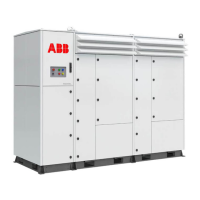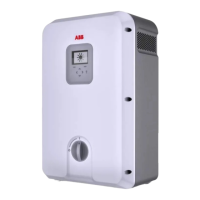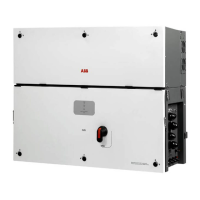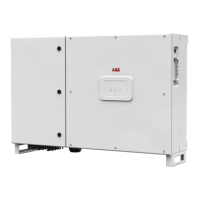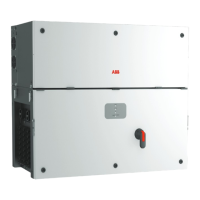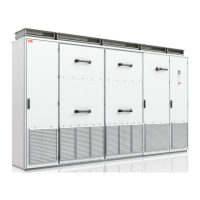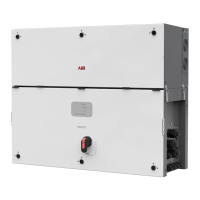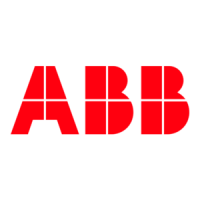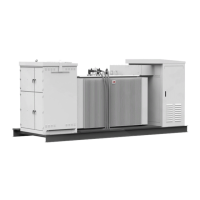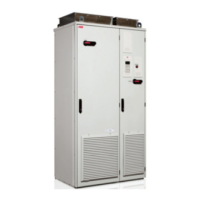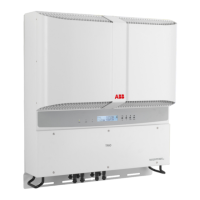Program features 27
Reactive power control
The inverter is capable of generating reactive power to the grid.
• With a positive reactive power reference, the inverter injects reactive power to the grid.
This is also called as capacitive reactive power or over-excited operation.
• With a negative reactive power reference, the inverter absorbs reactive power from
the grid. This is also called inductive reactive power or under-excited operation.
A reference value for reactive power can be given through the control unit or fieldbus
interface. The inverter also supports reactive power generation according to the defined
curves such as Q(U), Q(P), and cos (P).
A reference type for the reactive power can be selected from several different types (see
parameter 124.06 Q power ref type). A reference value must also be entered in parameter
124.01 User Qref according to the selected reference format. The possible input reference
types are:
• Reactive current reference in Amperes
• Reactive current reference in percent of the nominal current
• Reactive power reference in kVAr
• Reactive power reference in percent of the nominal power
• Reactive power reference angle in degrees
• Reactive power reference in CosPhi
• Voltage reference for the AC voltage control in Volts
• Voltage reference for the AC voltage control in percent.
Parameter124.01 can be adjusted to two decimals. For accurate control, example in
CosPhi control mode, the value can be scaled with parameter124.04 Q ref scale.
Example, if Qref value 9.75 is scaled at 0.10, then the result is 0.975 internally.
Note: When the inverter is not enabled, change the scaling to minimize the
possibility of wrong Qref inputs.
Ramping is used for reactive current. The ramps can be set with parameters 124.14 Ireact
ref ramp up and 124.15 Ireact ref ramp down. The main tasks of the reactive current
ramping are:
• Reactive current reference limitation
• Reactive current reference ramping
• Ramp bypass in case of AC voltage control.
In addition to constant set points for reactive power, pre-defined curves can be used. If
only the curve is used as a reactive power reference, it can be set with parameter124.06 Q
power ref type = Q(x) regulation curve. The curve type can be selected with
parameter124.30 Q(x) curve. See examples of different curve types in the sections Q(U)
control curve (page 28), Q(P) control curve (page 29), and cos phi (P) control curve (page
30). The curve is defined with six points that map the input signal to the output signal. The
lock-in and lock-out conditions define when the selected curve is active.
The normal Q-ref can be used parallel to the Q(x) regulation curve, with parameter 124.29
Combined operation of Qref and Q(x) curve is enabled. When dual mode is enabled, the
normal Q-ref is used until the Q(x) regulation curve is activated by the lock-in condition and
in Q(U) curve with the Q(U) activation level.
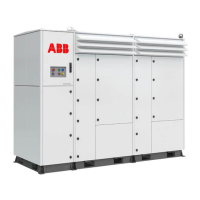
